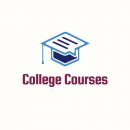Chapter 1: Introduction
Importance Of Matric In South Africa
Matric is the highest school-leaving qualification in South Africa and plays a crucial role in shaping students’ future opportunities. A good Matric result opens up several possibilities for further education and career paths.
Matric As A Requirement For Tertiary Institutions
One of the primary reasons Matric is important is that it serves as a prerequisite for admission into most tertiary institutions in South Africa. Universities, colleges, and technical institutes typically require a Matric certificate as a minimum entry requirement.
Opportunities Associated With Matric Success
Achieving good results in Matric can unlock numerous opportunities for students. It enhances their chances of receiving scholarships, bursaries, and financial aid. It also increases their prospects of securing employment or pursuing higher education.
Overview Of The South African Education System
Understanding the structure of the South African education system is essential for grasping the significance of Matriculation.
Three Levels Of Education
The South African education system comprises three levels: primary education (Grades 1-7), secondary education (Grades 8-12), and tertiary education (post-secondary education). Matriculation represents the final year of secondary education.
Purpose
This comprehensive guide aims to provide Grade 12 learners in South Africa with valuable insights into the Matriculation year. It covers various aspects, namely:
- The structure of the Matric year
- Expectations and challenges faced by Matric Students
- Subjects and assessments in Matriculation examinations, as well as,
- Available resources and support.
Chapter 2: Matriculation In South Africa: An Overview

The Matriculation Year
The final year of high school is a critical period in a student’s academic journey. It demands both academic dedication and emotional resilience. Students are expected to undertake a challenging course load and perform well in their exams.
Rigorous Academic Demands
During the Matriculation year, students are exposed to a comprehensive curriculum that covers a wide range of subjects. They must manage their time effectively to balance their studies, assignments, and exam preparation.
Coping With Emotional Stress
The Matriculation year can be emotionally challenging for students. The pressure to succeed, meet expectations, and make important decisions about their future can be overwhelming. Students should therefore develop effective coping mechanisms and seek support when needed.
Matriculation Examinations
The Matriculation examinations are pivotal assessments that determine whether students have met the requirements for a Matric pass. These exams are typically in November and December each year.
Importance Of Matriculation Exams
Matriculation examinations carry significant weight in the assessment of a student’s overall performance. They provide an opportunity for students to demonstrate their understanding of the subjects and apply their knowledge effectively.
Assessing Core Competencies
The Matriculation exams assess students’ abilities to think critically, solve problems, and communicate their ideas effectively. These core competencies are crucial for success in higher education and the workplace.
Exam Preparation Strategies
Effective exam preparation is the key to performing well in Matriculation exams. Students should develop study schedules, revise key concepts, practice past exam papers, and seek assistance from teachers and mentors.
Grading And Results
After the completion of the Matriculation exams, student papers are carefully assessed and graded. The results determine the quality of their performance in each subject and whether a student achieves a Matric pass.
Chapter 3: Compulsory Subjects For Matric

In Matric, students are to study a set list of compulsory subjects that provide them with a broad foundation of knowledge and skills. These subjects play a crucial role in their overall academic development and are essential for achieving a Matric certificate. Let us explore the three compulsory subjects for Matric in South Africa.
- Mathematics
- English
- Life Orientation
Mathematics
Mathematics is a fundamental subject that forms the basis for many fields of study and careers. It enhances problem-solving skills, logical reasoning, as well as critical thinking abilities.
Importance Of Mathematics
Mathematics is a compulsory subject for Matric because it is widely applicable in various academic disciplines and professional domains. It is particularly crucial for students interested in careers in science, engineering, technology, finance, and related fields.
Key Concepts And Skills
Matric Mathematics covers topics such as algebra, geometry, trigonometry, calculus, and statistics. It aims to develop students’ numerical and analytical abilities, as well as their understanding of mathematical principles and their practical applications.
Resources And Support
To excel in Matric Mathematics, students can utilise various resources such as:
- Textbooks
- Online tutorials
- Practice exercises
- Additional support from teachers and tutors
- Regular practice,
- Active engagement and seeking clarification for challenging concepts are the key to mastering the subject.
English
English is a vital subject as it serves as the language of instruction and the language used in Matriculation examinations in most South African schools. Proficiency in English is crucial for effective communication, critical reading, and writing skills.
Importance Of English
English proficiency is highly valued in educational, professional, and social contexts. It enables students to express their thoughts clearly, comprehend complex texts, and engage in meaningful conversations.
Language Skills
Matric English focuses on reading, writing, listening, and speaking skills. It covers areas such as comprehension, grammar, essay writing, oral presentations, and literary analysis. Building vocabulary and honing language proficiency are integral aspects of the subject.
Enhancing English Proficiency
Students can enhance their English proficiency by immersing themselves in English-language materials such as books, newspapers, movies, and podcasts. Regular practice in reading, writing, and engaging in discussions will help improve language skills.
Life Orientation
Life Orientation is a multidisciplinary subject designed to equip students with essential life skills and knowledge to lead healthy, well-rounded lives. It encompasses various aspects of personal development, social engagement and ethical decision-making.
Holistic Education
Life Orientation aims to advance students’ personal, social, and emotional development. It covers topics such as:
- Health
- Wellness
- Relationships
- Human Rights
- Citizenship
- Career Guidance and,
- Financial Literacy.
Practical Life Skills
Life Orientation equips students with practical skills, such as time management, goal setting, conflict resolution, and critical thinking. It also encourages self-reflection, empathy, and responsible decision-making.
Real-World Applications
Life Orientation connects classroom learning to real-world scenarios and challenges students to apply their knowledge and skills in practical contexts. It promotes active citizenship, social responsibility, and the development of a positive self-identity.
Chapter 4: Elective Subjects For Matric

In addition to the compulsory subjects, Matric students can choose elective subjects based on their interests, career aspirations, and academic strengths. These elective subjects provide students with a deeper understanding of specific fields and allow them to explore their passions. Let us delve into the different categories of elective subjects for Matric:
- Sciences
- Humanities
- Vocational subjects
Sciences
The sciences encompass subjects such as Physics or Chemistry, Biology, and Agricultural Sciences. These subjects offer students a chance to explore the natural world, conduct experiments, and develop scientific thinking and problem-solving skills.
Exploring The Natural World
Science subjects provide a foundation for students interested in pursuing careers in fields such as medicine, engineering, environmental science, and research. They help students understand the principles and phenomena that govern the physical and natural world.
Practical Applications
Through laboratory experiments, fieldwork, and practical investigations, students gain hands-on experience in scientific methodologies, data analysis, and critical evaluation. These skills are valuable for future scientific endeavours.
Interdisciplinary Connections
Science subjects often intersect with other disciplines, such as Mathematics and Technology. They enable students to make connections between different areas of study and apply their scientific knowledge in real-life contexts.
Humanities
Humanities subjects include History, Geography, Economics, and Languages such as Afrikaans, isiZulu, and isiXhosa. These subjects focus on understanding human societies, cultures, and the interconnectedness of people around the world.
Exploring Human Societies
Humanities subjects provide students with a deeper understanding of historical events, geographic landscapes, economic systems, and cultural diversity. They encourage critical thinking, interpretation of sources, and analysis of social issues.
Developing Analytical And Communication Skills
Humanities subjects nurture students’ analytical and research skills, as well as their ability to construct coherent arguments and express their ideas effectively. These skills are valuable in academic pursuits and various professional fields.
Cultural Awareness And Global Perspectives
Studying humanities subjects foster cultural appreciation, empathy, and an understanding of global interconnectedness. It enables students to explore different perspectives, challenge assumptions, and contribute to inclusive and tolerant societies.
Vocational Subjects
Vocational subjects offer students practical skills and knowledge that prepare them for specific careers or further vocational training. These subjects provide a pathway for students interested in pursuing technical or trade-related professions.
Practical Skills Development
Vocational subjects such as Mechanical Technology, Hospitality Studies, and Information Technology equip students with hands-on skills and industry-specific knowledge. They focus on practical applications and workplace readiness.
Career Exploration
Vocational subjects enable students to explore potential career paths, gain industry exposure, and make informed decisions about their future. They provide a valuable foundation for further vocational training or entry into the job market.
Work Experience Opportunities
Some vocational subjects offer work-integrated learning components, allowing students to gain practical experience through internships, apprenticeships, or industry partnerships. This practical exposure enhances their employability and understanding of work environments.
Chapter 5: Calculation Of The Matric Certificate

The Matric certificate is awarded based on the performance of students in their Matriculation examinations. To determine whether students have met the requirements for a Matric pass, the marks obtained in different subjects are weighted and aggregated.
In this chapter, we will explore the calculation process and the overall pass requirements for the Matric certificate.
Subject Weighting And Marks Allocation
Each Matric subject is assigned a specific weighting, which reflects its importance in the overall calculation of the Matric certificate. The weighting is determined based on factors such as the difficulty level of the subject and the number of students who take it.
Importance Of Subject Weighting
Subject weighting ensures that subjects that are considered more challenging or essential for certain career paths have a larger impact on the overall Matric result. It reflects the relative significance of each subject in the academic evaluation process.
Allocating Marks For Assessment Components
Within each subject, marks are allocated to different assessment components, such as exams, coursework, practical assessments, and projects. The allocation of marks may vary depending on the subject and its specific requirements.
Aggregation Of Marks And Overall Pass Requirements
The marks obtained in each subject are aggregated to calculate the overall Matric result. However, it is important to note that simply achieving a pass mark in each subject does not guarantee an overall Matric pass.
There are specific minimum requirements that students must meet:
- Minimum subject requirements
- Overall pass requirements
- Distinction and Higher Certificate requirements
Minimum Subject Requirements
To pass Matric, students must achieve a minimum mark of 40% in their Home Language subject and a minimum of 30% in two other subjects. These minimum requirements ensure a basic level of competency across different areas of study.
Overall Pass Requirements
In addition to the minimum subject requirements, students must also achieve an overall average of at least 40% across their best six subjects. This includes the marks obtained in the compulsory subjects and additional subjects chosen as electives.
Distinction And Higher Certificate Requirements
Students who excel in their Matric exams can earn distinctions or achieve a higher certificate. To receive a distinction, students must obtain 80% or more in at least four subjects. A higher certificate is awarded to students who meet the minimum requirements but do not achieve a full Matric pass.
Understanding the calculation process and passing requirements, allows students to set realistic goals and work towards achieving their desired Matric outcomes. In the next chapter, we will explore options for rewriting Matric exams and repeating the Matric year.
Chapter 6: Rewriting Matric Exams

Rewriting Exams For Specific Subjects
If students do not pass all of their Matric exams or are unhappy with their results in specific subjects, they have the opportunity to rewrite those exams. Rewriting exams allows students to improve their marks and potentially achieve a better Matric certificate.
Eligibility For Rewriting Exams
To be eligible for exam rewriting, students must meet certain requirements set by the education authorities. These requirements may include attending additional classes, completing prescribed coursework, or demonstrating a commitment to improving their performance.
Preparation For Exam Rewriting
Students who choose to rewrite exams should create a study plan that focuses on the specific subjects they need to improve in. They can seek guidance from their teachers, access additional study resources, and practice past exam papers to enhance their understanding and exam technique.
Repeating Matric As A Whole
In some cases, students may not pass Matric as a whole or may not achieve the desired results even after rewriting specific exams. In such situations, they have the option to repeat the entire Matric year.
Eligibility For Repeating Matric
To be eligible for repeating Matric, students must meet certain requirements, which may include:
- Meeting the age limit for repeating
- Providing valid reasons for the repeat
- Following the necessary application procedures.
Benefits Of Repeating Matric
The Benefits of repeating Matric provide students with the opportunity to:
- Strengthen their knowledge and their skills in all subjects
- Address any learning gaps, and improve their overall performance.
- It allows them to have a fresh start, and approach their studies with renewed focus and determination.
Support And Guidance For Repeat Matric Students
Students who choose to repeat Matric can benefit from various support systems. Schools often have programs to provide additional academic assistance, counselling services, and mentorship to help students navigate the challenges of repeating Matric.
By considering the options of rewriting specific exams or repeating Matric, as a whole, students can take proactive steps to improve their Matric results and strive for their desired academic outcomes. In the next chapter, we will explore the available resources and support systems that can aid Matric students in their journey to success.
Chapter 7: Resources And Support For Matric Students

Resources And Study Materials
Matric students have access to a variety of resources and study materials to support their learning and exam preparation. These resources can help students gain a deeper understanding of the subjects and enhance their performance in the Matriculation exams.
Textbooks And Study Guides
Textbooks are an essential resource for Matric students as they provide comprehensive coverage of the curriculum; Study guides, on the other hand, offer condensed and focused information, along with practice questions and exam tips. Both resources can be used to supplement classroom learning and aid in self-study.
Online Resources
The internet offers a wealth of educational resources that Matric students can utilise. Online platforms provide access to educational websites, video tutorials, interactive quizzes, and downloadable study materials. These resources cater to different learning styles and can be accessed at any time, anywhere.
Past Exam Papers
Practising past exam papers is an effective way for Matric students to familiarise themselves with the exam format, types of questions, and time management. Past papers can be obtained from schools, educational websites, or exam board websites. They provide an opportunity for students to assess their knowledge and improve their exam technique.
Teachers And Mentors
Teachers and mentors play a crucial role in supporting Matric students throughout their academic journey. They provide guidance, subject expertise, and motivation to help students succeed in their exams.
Classroom Teachers
Teachers are instrumental in delivering the curriculum, explaining complex concepts, and providing valuable feedback on student progress. They can offer individualised support, conduct revision classes, and provide study materials tailored to the needs of their students.
Subject Specialists And Tutors
Subject specialists and tutors can provide additional support for Matric students who need extra help in specific subjects. These experts offer one-on-one or small group sessions to address their students’:
- Individual challenges
- Clarify doubts and provide focused guidance on exam preparation.
Mentors And Role Models
Mentors and role models can inspire and motivate Matric students to strive for success.
- They can share their own experiences
- Offer advice on study techniques and time management
- Provide emotional support during challenging times.
Mentors can be teachers, family members, or professionals in the student’s desired career fields.
Support Networks
Matric students can benefit from building support networks, both within their school community and outside of it. These networks provide a sense of belonging, encouragement, and shared learning experiences.
Peer Support
Interacting with fellow Matric students allows for exchanging ideas, study strategies, and mutual support. Forming study groups, participating in group discussions, and engaging in collaborative learning can enhance students’ understanding of the subjects and foster a supportive learning environment.
Family Support
Family members can play a vital role in supporting Matric students. They can provide a conducive study environment, offer emotional support, and celebrate the student’s achievements. Involving family members in the student’s educational journey helps create a sense of shared responsibility and motivation.
Online Communities And Forums
Online communities and forums provide platforms for Matric students to connect with peers from different schools and regions. These platforms allow for the exchange of study resources, tips, and experiences. Engaging in online discussions can broaden students’ perspectives and provide additional support outside their immediate social circle.
By utilising the available resources, seeking guidance from teachers and mentors, and building support networks, Matric students can enhance their academic performance, gain confidence, and overcome challenges they may encounter during their Matriculation year.
Chapter 8: Maximising Success In Matric
Effective Studying And Time Management
Effective studying and time management are essential for achieving success in Matric. Here are some strategies to help students make the most of their study time:
- Create a study schedule
- Break down study sessions
- Use active learning techniques
Create A Study Schedule
Developing a study schedule allows students to allocate dedicated time for each subject and topic. They should prioritise challenging subjects and allocate more time to areas that require extra attention. A well-planned schedule helps students stay organised and ensures that they cover all the necessary material.
Break Down Study Sessions
Instead of cramming large chunks of information into a single study session, it is more effective to break down study sessions into smaller, focused periods. Students can study for 25–30 minutes and then take short breaks to rest and recharge. This technique, known as the Pomodoro Technique, improves concentration and retention.
Use Active Learning Techniques
Engaging in active learning techniques can enhance understanding and retention. Instead of passively reading or memorising, students can actively participate in the learning process. This includes summarising information in their own words, teaching concepts to others, solving practice questions, and creating concept maps or diagrams.
Maintaining A Healthy Work-Life Balance
Achieving success in Matric requires not only academic focus, but also maintaining a healthy work-life balance. Here are some tips to help students maintain a balanced lifestyle:
- Set realistic goals
- Take breaks and practice self-care
- Prioritise sleep and nutrition
Set Realistic Goals
Students should set realistic goals that align with their abilities and circumstances. Breaking down larger goals into smaller milestones allows for a sense of achievement and reduces feelings of overwhelm. It is important to remember that balance includes personal well-being and not just academic accomplishments.
Take Breaks And Practice Self-Care
Regular breaks are crucial to prevent burnout and maintain productivity. Students should incorporate activities they enjoy, such as hobbies, exercise, or spending time with friends and family, into their routines. Engaging in self-care activities helps relieve stress and promotes overall well-being.
Prioritise Sleep And Nutrition
Adequate sleep and proper nutrition are vital for optimal cognitive function. Students should prioritise getting enough sleep each night to support concentration, memory, and overall cognitive performance. Additionally, maintaining a balanced diet with nutritious meals and staying hydrated contributes to sustained energy levels.
Staying Motivated
Motivation plays a key role in achieving success in Matric. Here are some strategies to help students stay motivated throughout their Matriculation year:
- Set clear goals
- Celebrate progress and achievements
- Seek support and encouragement
Set Clear Goals
Setting clear and specific goals will provide a sense of direction and purpose. Students should establish both short-term and long-term goals that are meaningful to them. Writing down their goals and regularly revisiting them serves as a reminder of what they are working towards.
Celebrate Progress And Achievements
Acknowledging and celebrating progress, no matter how small, helps boost motivation. Students can reward themselves for completing study tasks, achieving milestones, or performing well in assessments. Celebrating achievements reinforces a positive mindset and encourages continued effort.
Seek Support And Encouragement
During challenging times, students should seek support from teachers, mentors, and peers. They can discuss their concerns, share their achievements, and ask for advice when needed. Surrounding themselves with a supportive network helps maintain motivation and provides a sense of camaraderie.
In conclusion, by implementing effective study and time management strategies, maintaining a healthy work-life balance, and staying motivated, Matric students can maximise their chances of success.
Remember, success in Matric goes beyond academic achievements and encompasses personal growth and well-rounded development. With dedication, perseverance, and a positive mindset, students can overcome challenges and achieve their goals.
Conclusion
In conclusion, Matriculation is a crucial milestone in the South African education system, serving as the highest school-leaving qualification. It opens up numerous opportunities for students, allowing them to pursue higher education and embark on their desired career paths. Throughout this comprehensive guide, we have:
- Explored the importance of Matric in South Africa
- Provided an overview of the Matriculation year
- Discussed compulsory and elective subjects
- Delved into the calculation of the Matric certificate
- Examined options for rewriting exams
- Highlighted available resources and support, and
- Shared strategies for maximising success in Matric.
Matric is a demanding year that requires dedication, hard work, and effective study habits. Therefore, students need to understand the structure and expectations of the Matriculation year, as well as the subjects and assessments involved.
By taking advantage of the available resources, seeking support from teachers and mentors, and building strong support networks, students can enhance their academic performance and cope with the challenges they may face.
Furthermore, effective time management, maintaining a healthy work-life balance, and staying motivated are crucial elements in achieving success in Matric. Students should prioritise their well-being, engage in active learning techniques, and set realistic goals. Celebrating progress, seeking support, and persevering through setbacks will contribute to their overall success.
As Matric students embark on this crucial journey, it is important to remember that the pursuit of education is not solely about achieving high marks. It is also about personal growth, self-discovery, and developing the skills necessary for a successful future.
With determination, resilience, and a positive mindset, Matric students can navigate through the challenges of this transformative year and lay a solid foundation for their future endeavours.
By utilising the guidance and information provided in this book, Matric students can approach their journey with confidence, understanding, and a clear roadmap to success. May the Matriculation year be filled with growth, achievement, and the realisation of dreams for the future. Best of luck on the journey to success in Matric and beyond!
Author: Jan Badenhorst
Editor: Lynnzelle Adams
Date Published: July 12, 2023
